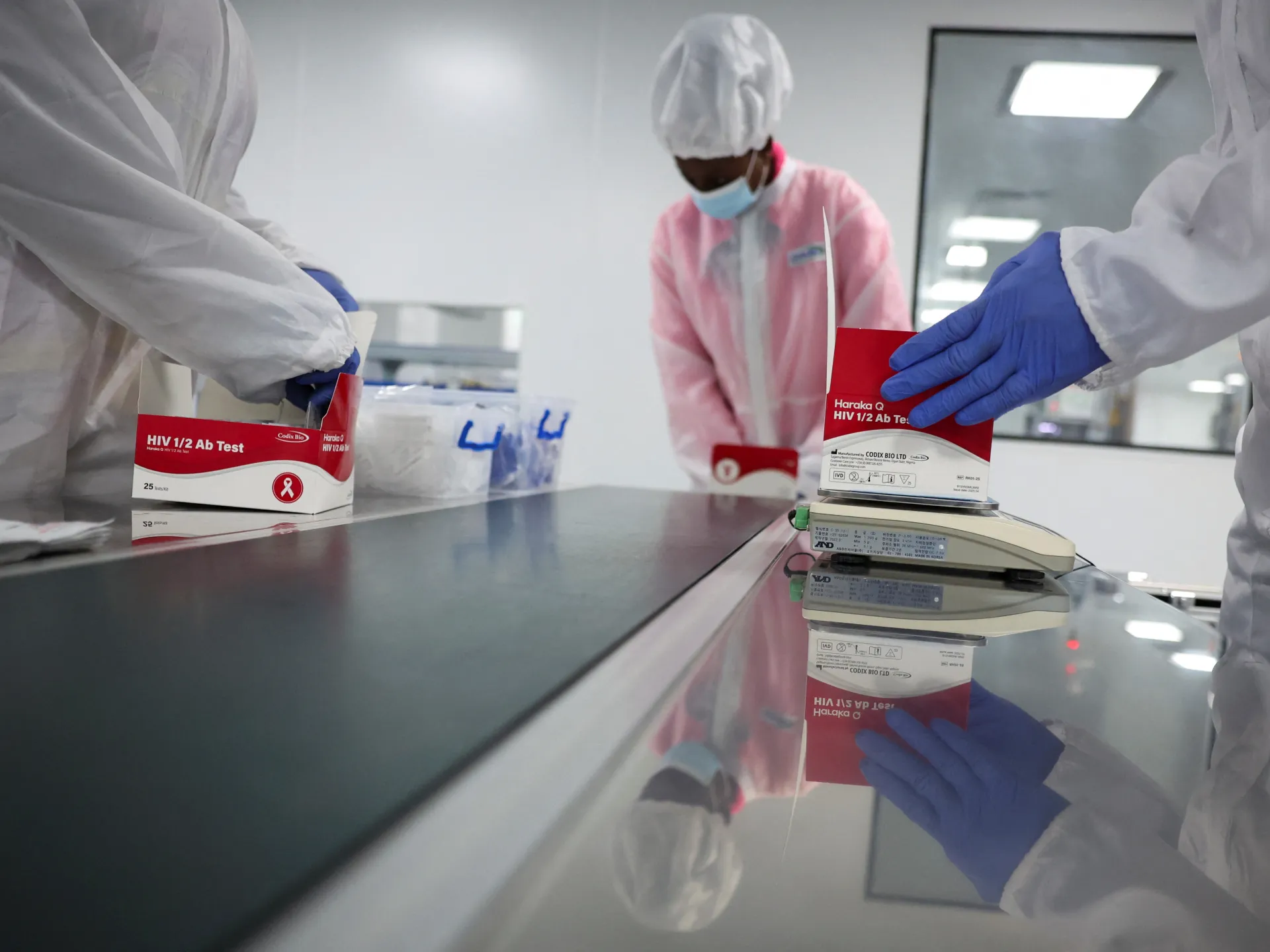International funding cuts disrupted global response to HIV, UN report says | HIV/AIDS News
UNAIDS says millions across the world lost access to treatment and preventive care due to financial shortfalls.
The United Nations agency for combating AIDS has announced that global funding disruptions for treatment and prevention programmes are leaving millions of people without access to care.
In a report released on Tuesday, UNAIDS said the global response to the disease “immediately entered crisis mode” after the United States halted funding when President Donald Trump took office in January.
Recommended Stories
list of 3 itemsend of list
The Trump administration had suspended all new foreign aid funds on January 25, except for military assistance to Israel and Egypt.
Some of the HIV funding was restored in the second half of the year, but in the wake of Trump’s decision to dismantle the US Agency for International Development (USAID), certain programmes have not resumed.
UNAIDS said the cuts were compounded by “intensifying economic and financial pressures on many low and middle-income countries”.
The funding shortfalls, it added, are having “having profound, lasting effects” on the lives of people across the world.
“People living with HIV have died due to service disruptions, millions of people at high risk of acquiring HIV have lost access to the most effective prevention tools available, over 2 million adolescent girls and young women have been deprived of essential health services, and community-led organizations have been devastated, with many being forced to close their doors,” the report read.
Due to the funding cuts, the number of people using preventive HIV medication, known as PrEP, fell by 64 percent in Burundi, 38 percent in Uganda and 21 percent in Vietnam. Condom distribution in Nigeria dropped by 55 percent.
“The funding crisis has exposed the fragility of the progress we fought so hard to achieve,” said Winnie Byanyima, the executive director of UNAIDS.
“Behind every data point in this report are people … babies missed for HIV screening, young women cut off from prevention support, and communities suddenly left without services and care. We cannot abandon them.”
Despite the financial crisis, UNAIDS said there were some positive trends emerging, including national and regional initiatives to bolster health programmes and treat the disease.
“Communities are rallying to support each other and the AIDS response. Although the most impacted countries are also some of the most indebted, limiting their ability to invest in HIV, governments have taken swift action to increase domestic funding where they can,” the report read.
“As a result, some countries have maintained or even increased the number of people receiving HIV treatment.”
The report recommends restructuring the international debt of lower-income countries and pausing their payments until 2030 to allow them to direct more resources to HIV care and prevention.
It also called for “inspiring innovation with prizes instead of patents, and treating health innovations as global public goods in times of pandemics”.
On top of dwindling funds, the report highlighted another challenge in the fight against AIDS: “a growing human rights crisis”.
“In 2025, for the first time since UNAIDS began monitoring punitive laws in 2008, the number of countries criminalizing same-sex sexual activity and gender expression increased,” it said.
“Globally, anti-gender and anti-rights movements are growing in influence and geographic reach, jeopardizing gains made to date on the rights of women and girls, people living with HIV and LGBTIQ+ people.”
